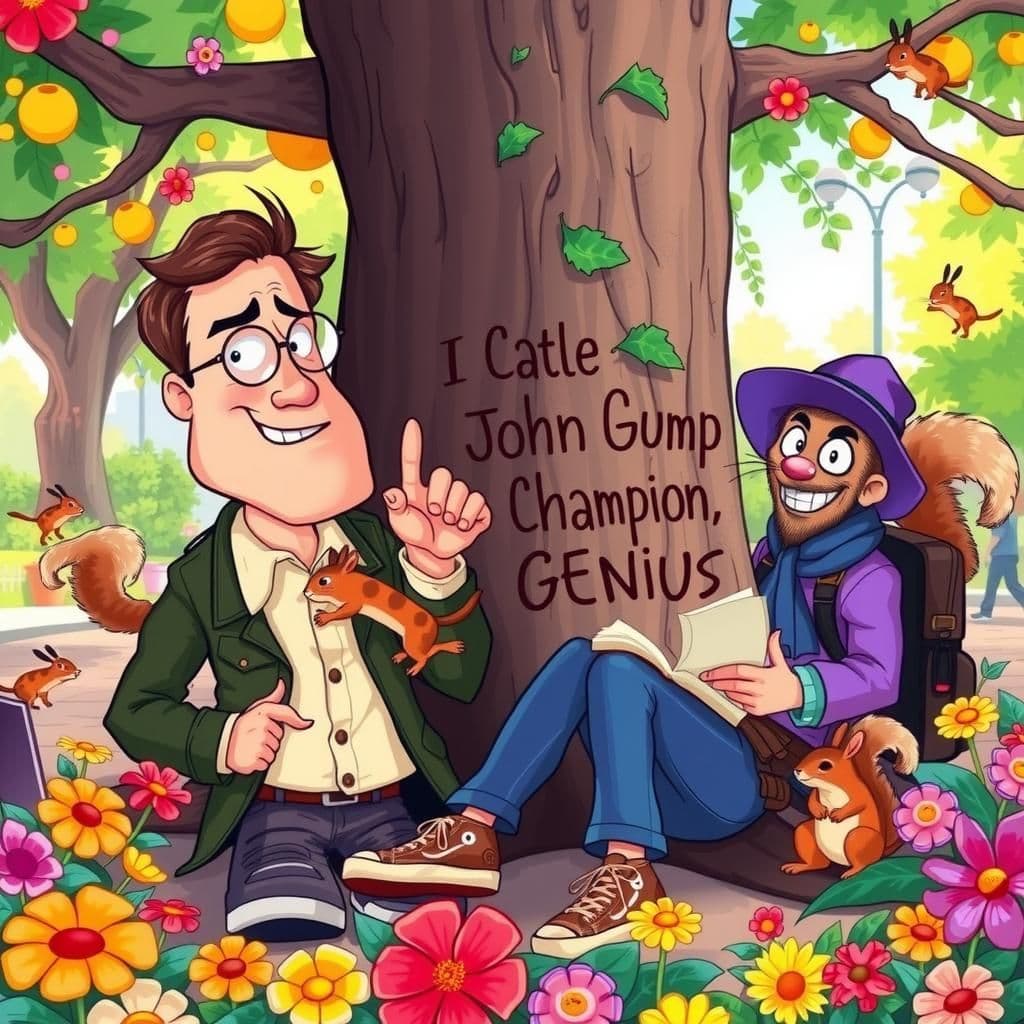The Writer and the Tramps
In "The Writer and the Tramps," a story that embodies the spirit of heartwarming moral stories, an Ambitious Writer arrogantly dismisses a Tramp's question about his shirt, claiming it symbolizes the genius's unconcern. The Tramp, in a simple yet profound act, carves "John Gump, Champion Genius" into a tree, delivering a life-changing lesson about the contrast between true talent and superficial arrogance. This moral short story reminds us that true genius is often humble and unassuming.

Reveal Moral
"True genius is not measured by appearances or self-importance, but rather by humility and the impact one makes on others."
You May Also Like

The Shadow of the Leader
In "The Shadow of the Leader," a political leader is taken aback when his shadow unexpectedly detaches and races away. When he calls it back, the shadow cleverly retorts that if it were truly a scoundrel, it wouldn't have abandoned him, cleverly reflecting on the leader's own questionable character. This funny story with moral echoes themes found in popular moral stories, reminding us that our actions often reveal our true selves.

The Fox and the Monkey
In "The Fox and the Monkey," a boastful Monkey claims that monuments in a cemetery honor his illustrious ancestors, who were esteemed freedmen. The clever Fox highlights the ease of lying when there are no witnesses to challenge the falsehoods, illustrating that a false tale often betrays itself. This fable serves as a life-changing story with a moral, reminding readers of the importance of honesty in impactful moral stories.

The Australian Grasshopper
In a whimsical tale set in Australia, a Distinguished Naturalist is captivated by a Kangaroo's impressive leap, leading to humorous reflections on the local environment. After a conversation with his native Guide about the meadows and hay length, he comically suggests that the local grasshopper must be of extraordinary size. This short story, rich in storytelling with morals, subtly highlights the importance of perspective and the unexpected wonders of nature in kids' moral stories.